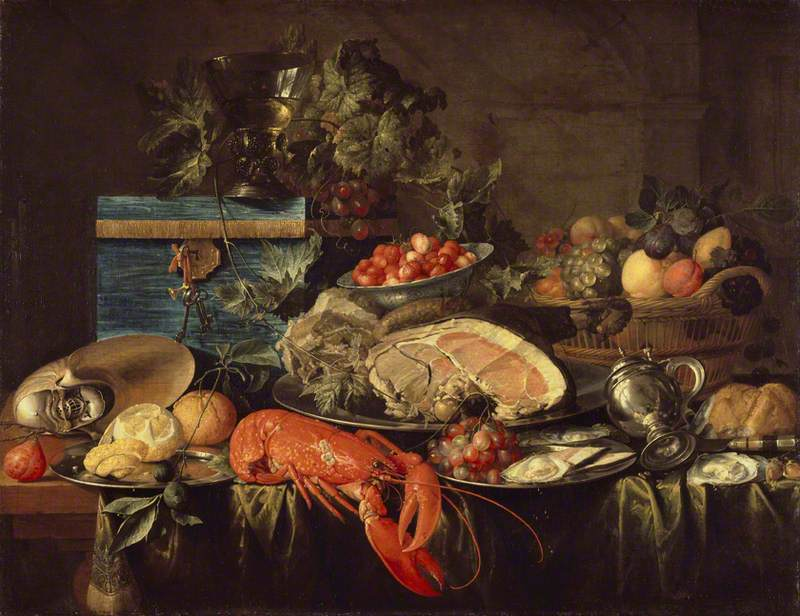
Ecclesiastes: Pleasure and Greatness
Published March 15, 2023
“And whatever my eyes desired I did not keep from them. I kept my heart from no pleasure, for my heart found pleasure in all my toil, and this was my reward for all my toil. Then I considered all that my hands had done and the toil I had expended in doing it, and behold, all was vanity and a striving after wind, and there was nothing to be gained under the sun.” Ecclesiastes 2:10-11
Thus far, Ecclesiastes has declared all things vanity (1:2) and has asserted (in the form of a rhetorical question) that there is no ultimate gain to be found in life (1:3). These concepts were then illustrated through a poem using vivid metaphors from nature (1:4-7) and axiomatic statement about the human condition (1:8-11). Now Solomon will demonstrate these same truths through an autobiographic account of his own quest for gain (1:12-2:26).
Solomon’s quest begins with a two-part introduction in 1:12-18. Verses 12-15 correspond to the first part of the quest, the pursuit of pleasure and greatness (2:1-11), and verses 16-18 correspond to the second part of the quest, the pursuit of wisdom (2:12-16). For this post we will consider the first part of the quest (2:1-11) along with its corresponding introduction (1:13-15).
A Proverb
In 1:13-15, Solomon recounts how he sets out to examine “the unhappy business” of “all that is done under heaven.” In other words, this is an examination of all human endeavors, specifically with the question in mind, “What does man gain by all the toil at which he toils under the sun?” (1:3). The answer is given in the form of an enigmatic proverb. It reads, “What is crooked cannot be made straight, and what is lacking cannot be counted” (1:15). Oh, the wise and their riddles! Without retreading the ground covered by previous posts, I propose the following interpretation of the proverb in light of the whole context of Ecclesiastes: The world has been irreparably broken (made “crooked” and subjected to vanity), and no amount of human effort can change this fact. Therefore, all attempts to find gain (getting ahead in life, beating the system, etc.) will fail.
What is first stated opaquely in 1:15 is made clear in 2:1-11 as Solomon recounts his own personal quest for gain. Solomon conducts an experiment to see if any gain may be found, listing one by one the objects of his pursuit, such as laughter, alcohol, hobbies, building projects, etc. The list of pursuits can be divided in two parts, with the items in verses 1-3 comprising a larger category of the pursuit of pleasure, and the items in 4-9 representing the pursuit of greatness.
Pleasure
Solomon first tried pleasure, which included experimenting with wine and enjoying himself. Some read “sinful pleasure” into this section, but the Hebrew word for pleasure is more neutral. Solomon notes that even while he partook in wine his heart was still guiding him in wisdom (2:3), which seems to suggest moderation. The overall picture painted then is not one of sinful overindulgence, but of simply having a good time.
Greatness
The second half of the section (4-9) focuses on the pursuit of greatness. Solomon accumulated massive wealth, possessions, and power, his splendor exceeded all who came before him (2:9), and he made a great name for himself.
The Result
What was the end result of this grand experiment? Did the pursuit of pleasure or the pursuit of great result in ultimate gain? The answer, which is an emphatic “no,” is given in 2:10-11. While Solomon found some measure of pleasure in all these pursuits, all of it was declared “vanity and a striving after a wind,” and there was no gain to be found. The lesson in this passage should be obvious: If one of the wealthiest and most powerful men in history could not find ultimate fulfillment in pleasure, wealth, and power, what chance do we have?
All That Is in the World
I would be remiss if I did not point out that the objects of Solomon’s quest correspond to the description of the world in 1 John 2:16: “For all that is in the world—the desires of the flesh and the desires of the eyes and pride of life–is not from the Father but is from the world.” The pursuit of pleasure corresponds to the desires of the flesh, while the two components of the pursuit of greatness, wealth and power, correspond to the desires of the eyes and the pride of life respectively. All worldly pursuits, all temptations, all objects of worship that replace God on the throne of our hearts fall into one of these categories.
Application
Before we move on to the next stage in Solomon’s quest, it is good to pause for a moment of self-reflection. Is there a pursuit in your life that has overshadowed your pursuit of God? Perhaps it’s the pursuit of pleasure. This could come in the form of overindulgence: binge-eating, binge-drinking, or even binge-watching. Perhaps you are disciplined enough to avoid overindulgence, but food, drink, and entertainment still occupy a place where only God belongs. After all, even lawful pleasures are sinful when not enjoyed to the glory of God. (1 Cor. 10:31). If you are the type of person who is too busy to struggle with the pursuit of pleasure, you may not be off the hook either. If the reason you are too busy is because you are striving after wealth or power, you may be in even greater danger than the mere pleasure seeker.
The desires of the flesh, the desires of the eyes, and the pride of life—identify your biggest area struggle and ask the Lord to help you overcome it. There is a better way of living, one that does not lead to despair. What is this better way? Keep reading to find out.




0 Comments